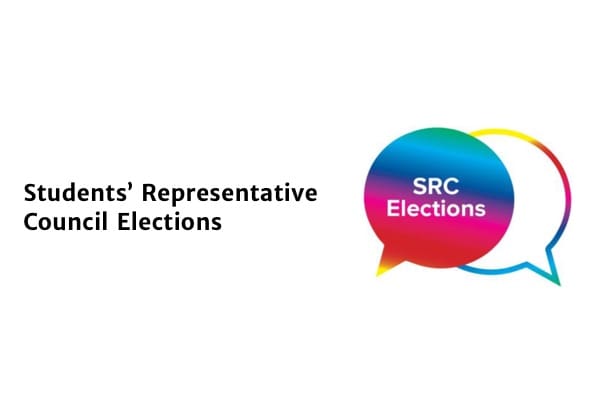I regret to report that, on September 4, three candidates have been disqualified for breaching the prohibition on early campaigning and the relevant brand has been issued a formal caution. I have come to this hard though necessary decision after careful consideration, and I believe it is in the best interests of the integrity of the SRC elections, both now and in the future, to place my reasons for taking this action on the public record.
In response to a series of complaints, I opened ten investigations into allegations of breaches of the Regulations regarding a number of individuals within the same brand. Two of those investigations were closed after determining that there was not sufficient evidence to proceed; one was withdrawn for personal reasons by the complainant; and, in six investigations across three candidates, I found that the respondents had breached the Regulations. In one investigation I found that the allegation could not be substantiated. I reproduce in what follows the justifications contained in my Determinations for applying these outcomes as a result of breaching the prohibition on early campaigning.
Campaigning ahead of the campaign period is a serious first mover advantage within the elections. Importantly, it is a non-reversible advantage. The problem with early campaigning is not merely that a person campaigned for an additional period of time but that they were campaigning ahead of anyone else. Being able to talk to a voter first lets you build a rapport and history with them that enhances your prospects of securing their votes on the polling day. In addition, early campaigning is tactically advantageous because it occurs in a non-contested environment: other campaigns, who follow the rules, are unable to ask voters to consider an alternative. Because this deliberation and debate is a critical to the democratic integrity of the Annual Elections – noting that it is already somewhat diminished through the atomisation of online elections – we must take early campaigning seriously and act decisively.
Even a handful of votes garnered via early campaigning carries a substantial power within the elections: enough to alter the results of the Council ballot. This is because of the number of available vacancies set against the number of voters. The election of Representatives to the Students’ Representative Council is a large and complex multi-member election, where candidates need around 100 to 120 votes to get elected ‘on quota’. The ‘informal quota’ – the number of votes one effectively needs to be elected – however, is often a small fraction of that figure. Securing just a handful of votes in advance of the campaigning period helps push a candidate into an elected position. Securing more than that can even ensure a second or third candidate is elected on a ticket, or assist the election of other candidates within a brand or in other brands. These advantages, I stress, are advantages driven not merely because of the additional period of campaigning but the unimpeded earliness of that campaigning.
Early campaigning, therefore, is a serious strategic advantage for any campaign because of the nature of the Council ballot and its non-reversible structure, on top of the mere fact of additional campaigning time. In general, because of the significant nature of this advantage, even campaigning to just one elector in any ballot must be treated as an extremely severe breach of the regulations, on the view that (a) a strong and universal deterrent is necessary to ensure compliance with this rule and (b) this ensures punishment can be allotted even if only a single complaint is presented, but which may form the tip of the iceberg. Allowing early campaigning to pass without the utmost gravity transforms the strategic environment of the elections for the dramatically worse.
It is important to pause and point towards some potential distinctions here, however. Early campaigning which takes the form of non-directed, highly incidental, and vague encouragements to vote is still prohibited under the Regulations, and will therefore face consequences if found to be true, but may not attract the same consequences as clear and unambiguous attempts to garner the support of specific voters. Though no firm decision has settled the matter on this point, one might imagine in this less serious category a Tweet sharing an Honi Soit article about the elections, and expressing disapproval of one of the candidates. However, I stress that these comments in this paragraph are entirely incidental to the rulings of these determination: the point is merely to highlight the possibility of the regulatory space covering early campaigning being carved up in different ways. For our purposes here, it is immaterial that this regulatory space might be divided in definite if presently undecided ways because, no matter how those distinctions are drawn, the nature of the acts considered in these determinations will always fall into this extremely severe category.
As I have been saying, early campaigning is an extremely severe breach of the regulations. The effect of this, under the Regulations, is that I may dispense with the requirement in 8.73(d) to issue a caution on the first occasion of a breach of the Regulations. Because of the non-reversible nature of the offence, its serious nature, and the need for a strong deterrent, the necessary outcome for these offences could only be disqualification.





